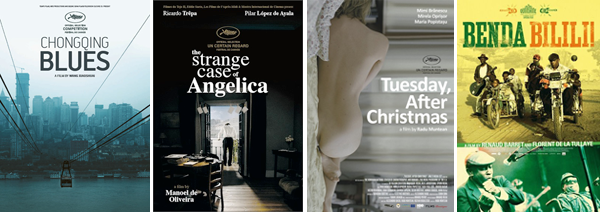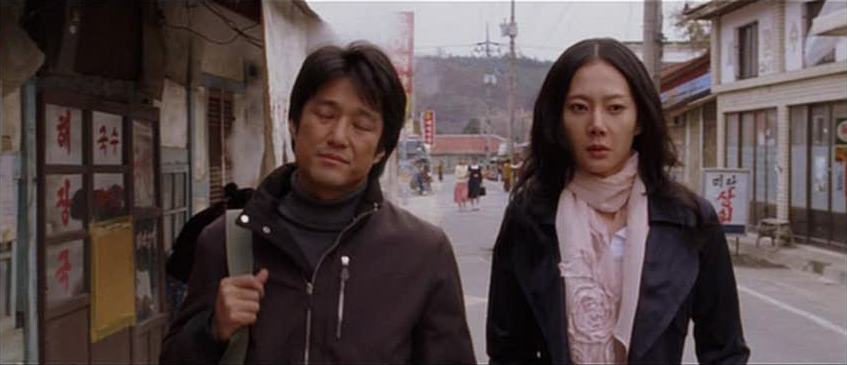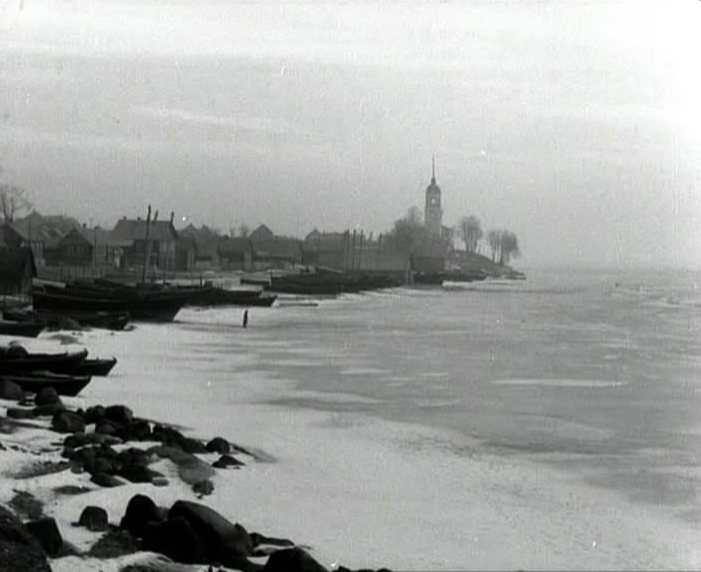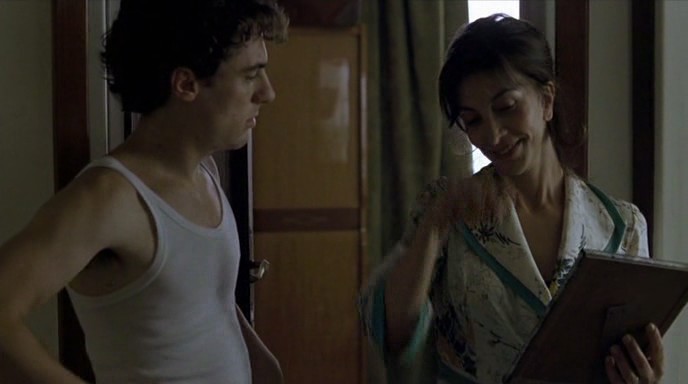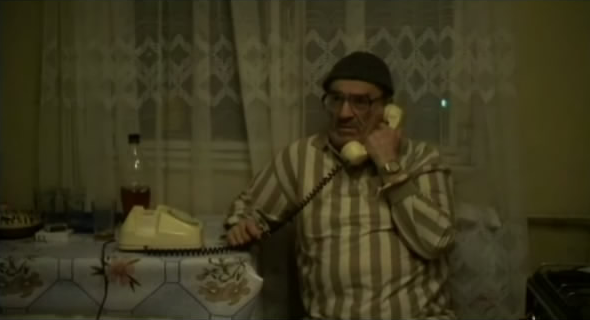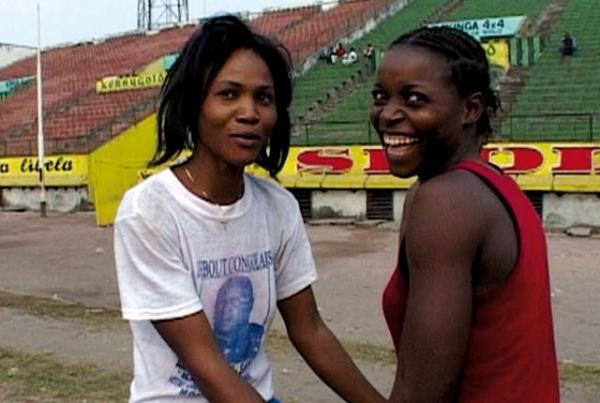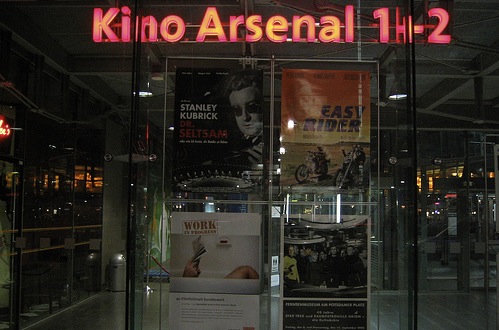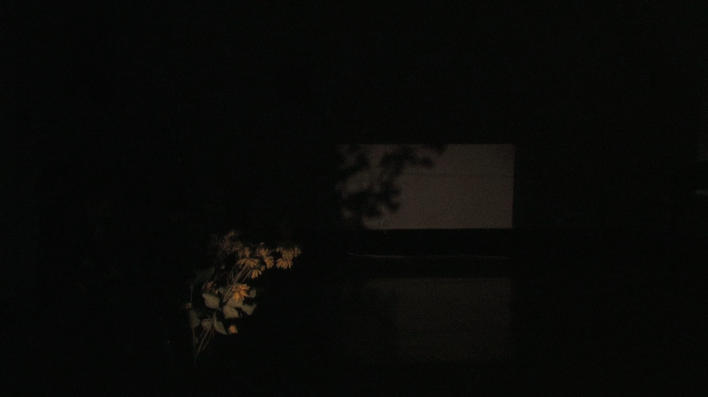Cannes 2010: Day 7

You All Are Captains (Directors’ Fortnight), the film opens with a young man and his partner, presumably both filmmakers, detailing the mechanics of a camera apparatus – how the device inhales reality, flips and inverts it, to record an image on emulsion. This demonstration is being done for a room full of what appears to be school children around age 10. Shot entirely in black and white, the directed pedagogy and presumed naivety of the children make one immediately think of early Kiarostami work, especially shorts like Two Solutions For One Problem. This demo is taking place, we find, because the kids are going to be given cameras to go around town to film the troubled lives they lead. After learning that the kids aren’t ‘ordinary’ school children, but ‘underprivileged’ ones, the uneasiness that we feel in this poorly-thought out, exploitative experiment is also felt by the children, who rebel against Laxe, the director. From this point on, the project only falls further apart, because the kids will not cooperate with this man who they do not trust – a man who shows, on camera, that he doesn’t know how to win over the trust of, much less direct, children. I imagine that many will find interest in this as a study on the pitfalls and difficulties of working with children, but when the documented man who cannot work with his actors is the same man who is making the film that I am watching, I very quickly wish I was just watching a film by someone who does know how to direct child actors (like, for instance, Kiarostami). It’s no secret that children are difficult to work with, nor that they will reject someone who disrespects them; this also applies to your film’s audience.
All Good Children (Directors’ Fortnight), A momentarily lovely film about adolescent loss and lust – beautifully filmed by Duffy, and warmly acted by the young cast – has too shallow a focus to avoid spiraling completely out of control into an absurd and laughable thriller. My memory of this one has become pretty hazy pretty quickly, but think The Secret Garden meets The Good Son for an idea of what Duffy brings to the table here.
Certified Copy (Competition), ***Knowing anything about this film is a spoiler. While I’ll keep this capsule Spoiler-Free, I think that reading a basic synopsis, or even viewer reactions, before viewing this minor masterpiece is a bit of a party-pooper.*** I ended up seeing this again today, after attending the public screening yesterday, because of a scheduling mix up (I actually thought I was in line for Of Gods & Men, oops!), but it ended up being a very happy accident, as I got to see my favorite film of the festival a much-needed second time.
Within the opening minutes, I was already catching things that were making me completely re-evaluate the roles of the major characters in the film (and these roles are still anything but nailed down for me, even after seeing it twice). The film has a strikingly similar set-up to (and will often be compared with) Before Sunset: a book release brings together two people who then spend the rest of the movie talking about art, philosophy, and relationships. But there is a very interesting twist that happens, one that kind of eases its way into the dialogue in a way that it is, at first, almost imperceptible; one that forces the viewer to question all of the conversations and mannerisms and meetings that took place before. The role-playing games really take off from here, and the results are, perhaps misleadingly, occasionally off-putting, even if they are always fascinating. The acting styles from both Binoche and Shimell are in a constant state of flux between naturalism and excessive Romanticism and cringe-inducing hamminess, to the point where, during the first screening, I actually reconsidered Binoche’s acting abilities altogether (“maybe she’s only effective when masked behind French dialogue?”, I thought). And this isn’t even touching the levels that Shimell approaches, with an awfully performed scene in an Italian restaurant in which he loses his cool and goes on a rant about wine-drinkers, newly-weds, and Elle (Binoche), all of which is so over-the-top and poorly written that I was, on both screenings, starting to lose faith in Kiarostami’s vision.
But, these few bits that I would call ‘low points’ have enough of a hint of intentionality that it never get derailed. Certain questionable moments are left open enough that they will likely be points of debate for years to come. This is especially supported by the fact that a ‘terrible scene’ will often be followed by a gut-wrenching, spot on one that nails everything; I chuckled at how effortlessly Kiarostami was having his way with me. And above all, like the best of his work, this film has a Heart, even if it isn’t always felt. This is clearest when the film’s final moments come, which are as mystifying as they are heartbreaking as they are beautiful, ending with a closing line – once again throwing me off of a previous scene in the film that I thought I had nailed down – which is still ringing in my ears, choking me up, while I struggle to figure it out.
October (Un Certain Regard), If you like films where a grumpy misanthrope is forced to care for a baby, struggles with caring for the baby, tries his damnedest to get rid of it, then finally warms up to the baby and realizes that it only took one innocent soul to show him that life is not so bad, then this is the film for you, and may our paths never cross. (though to be fair, the film has a scene that works, in which a roomful of the guy’s ‘friends’ sardonically sing him Happy Birthday and then blow out his candles for him)
Udaan (Un Certain Regard), While I can’t say that I welcome this year’s Slumdog Millionaire with open arms, at least this tale of a down-and-out boy finally rising above a lifetime of trials, tribulations, and a bastard father doesn’t have a clear-cut route in its manipulative plot, and doesn’t drag its audience through blood, shit, and piss in order to convince us that this guy deserves a break. I think there would have to be a major break-through or revolution in Bollywood cinema for the industry to actually produce something that I would want to see more than once, and that certainly still applies to Udaan, which is over-long, one-dimensional, and trite. But it is quite a bit of fun, and, in some parts, surprisingly ‘gritty’ and realistic, suggesting genuine dangers for our hero. That said, it won’t win Best Picture, and will therefore live on, just as Slumdog should have, as a slightly-more-entertaining-than-usual blip on the radar.
More Cannes Coverage:
Day 1, Day 2, Day 3, Day 4, Day 5, Day 6, Day 7, Day 8, Day 9, Day 10, Day 11
Cannes 2010: Day 7 Read More »






